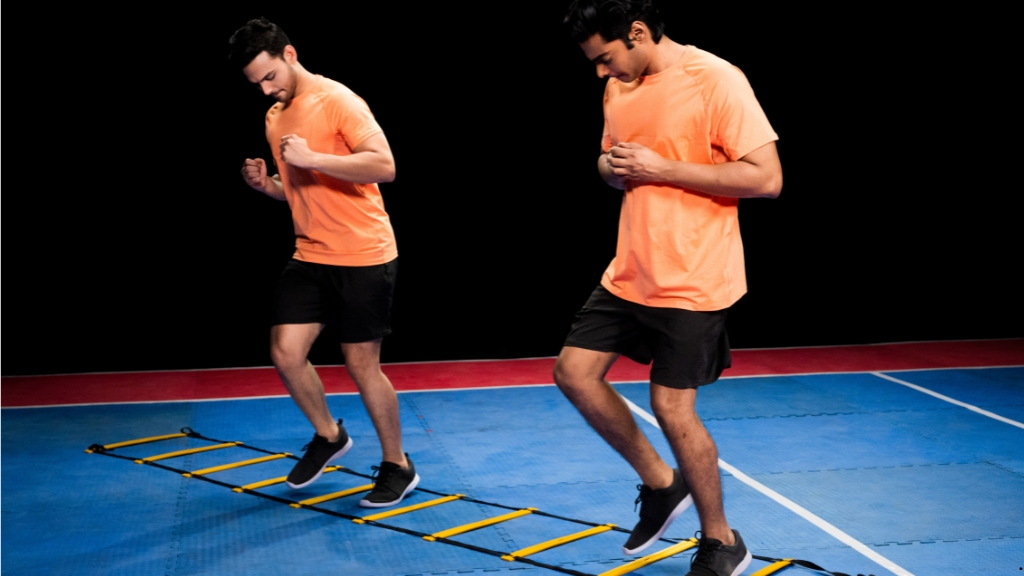Confidence isn’t something we’re born with—it’s something we build. I’ve learned that the key to unlocking confidence lies in one simple yet powerful concept: repetition. Whether it’s mastering a skill, preparing for a big presentation, or even navigating daily challenges, doing something repeatedly creates a sense of familiarity and control that’s hard to shake.
Repetition doesn’t just sharpen skills; it rewires the mind. Each time we practice, we’re not just improving our abilities—we’re also reinforcing belief in ourselves. That belief becomes the foundation for a mental edge, helping us tackle situations with clarity and self-assurance. Confidence isn’t magic; it’s a muscle, and repetition is how we strengthen it.
Overview Of The Mental Edge
The mental edge refers to a psychological advantage that enhances performance and decision-making under pressure. It emerges from a combination of self-belief, focus, and resilience. Repetition strengthens this edge by creating familiarity, which reduces uncertainty and boosts confidence in execution.
Building this edge relies on deliberate practice aligned with clear objectives. By repeating tasks in a structured manner, I develop muscle memory and mental clarity. This consistency reinforces positive neural pathways, making my responses smoother and more efficient over time.
Visualization is another key aspect of the mental edge. Rehearsing scenarios in my mind bridges the gap between mental preparation and physical execution. When paired with repetition, this practice improves accuracy and sharpens reactions in high-pressure situations.
Adaptability grows as the mental edge develops. Through consistent effort, I build confidence in handling unpredictable scenarios, ensuring I’m better equipped to manage setbacks and maintain focus.
The Role Of Repetition In Building Confidence
Repetition solidifies skills and creates a foundation for self-assurance. By consistently practicing, I train my mind and body to perform with precision and certainty.
Understanding Repetition As A Tool
Repetition functions as a mechanism to embed behaviors and responses. Each repeated action creates neural pathways, making skills more automatic over time. For example, athletes practice drills repeatedly to master movements until they require minimal conscious effort. Similarly, musicians rehearse scales and pieces consistently to achieve flawless execution. This regular practice converts complex tasks into second nature, allowing me to perform confidently even in high-pressure situations.
How Repetition Reinforces Mental Strength
Repetition builds resilience by reducing uncertainty. Performing the same action multiple times helps my brain recognize patterns, increasing familiarity and decreasing hesitation. For instance, I become less likely to doubt my judgment during decision-making when I’ve practiced scenarios repeatedly. This process also strengthens my ability to focus and remain composed when managing challenges. Repetition helps me internalize success, which boosts my belief in my abilities and supports long-term confidence development.
Key Lessons From The Mental Edge
Repetition lays the groundwork for building confidence by enhancing skills and fostering mental resilience. It strengthens the psychological foundation needed to navigate challenges effectively.
Strategies For Developing Confidence
- Set Clear Goals
I focus on defining specific, measurable goals to guide my efforts. For example, breaking down a complex task into smaller, actionable steps can make progress more tangible. Clear objectives ensure each repetition aligns with improvement.
- Commit To Consistency
Regular practice enhances familiarity and reduces uncertainty. I prioritize consistent effort, whether mastering a sport or refining public speaking skills, to foster automaticity and self-assurance.
- Incorporate Visualization
By mentally rehearsing actions, I simulate success and reinforce positive outcomes. Visualization bridges preparation and execution, helping me approach situations with confidence.
- Track Progress
I monitor my improvements to identify patterns and areas for further practice. Tracking success highlights growth, boosting motivation and belief in my abilities.
Overcoming Mental Barriers Through Practice
Repetition is key to breaking psychological limitations. When a task feels daunting, I introduce incremental challenges, building familiarity and reducing intimidation over time.
- Neutralize Fear Of Failure
I reframe setbacks as learning opportunities. By practicing repeatedly under varied conditions, I build resilience and reduce the fear associated with making mistakes.
- Cultivate Discipline
Deliberate practice overrides self-doubt and replaces it with trust in my skills. I focus on executing structured and intentional repetitions to reinforce my confidence.
- Reduce Overthinking
Engaging in repetitive action shifts my focus from analysis to execution. This habit simplifies decision-making, enabling me to perform seamlessly under pressure.
- Strengthen Resilience
Continuous repetition under challenging scenarios helps me adapt to adversity. Over time, I develop an unshakable mental edge, capable of navigating unpredictable situations with clarity.
Benefits Of Repetition In Everyday Life
Repetition impacts more than skill refinement; it plays a pivotal role in improving cognitive functions and mental resilience. Through consistent practice, individuals embed behaviors and improve their ability to adapt to everyday challenges effectively.
Improved Performance And Focus
Repetition sharpens performance by creating neural pathways that promote efficiency. For example, repeated tasks like typing or driving lead to smoother execution with minimal errors. This efficiency conserves cognitive resources, allowing for better multitasking and quicker decision-making.
It also enhances focus by reducing the mental effort required for familiar actions. When tasks become routine, like preparing presentations or practicing yoga sequences, the mind maintains clarity and avoids unnecessary distractions. Structured repetition trains the brain to maintain engagement without succumbing to external pressures.
Long-Term Mental Resilience
Repeated exposure to challenges builds mental resilience by fostering adaptability. When individuals regularly perform under varying conditions, such as public speaking or problem-solving, they develop the confidence to manage unexpected situations. Familiarity reduces hesitation and strengthens composure.
Repetition also ingrains patterns of discipline and perseverance, reinforcing a growth mindset even in the face of setbacks. Regular practice in areas like fitness routines or conflict resolution enables individuals to assess failures constructively, ensuring continued progress over time.
Real-Life Applications Of The Mental Edge
Repetition, when leveraged effectively, transforms confidence into actionable results across different aspects of life. By applying the principles of the mental edge, individuals can achieve peak performance and personal growth.
Examples From Sports And Performance
Athletes consistently rely on structured repetition to build confidence in high-pressure scenarios. Basketball players refine free-throw accuracy through countless practice shots, while gymnasts repeat routines to develop muscle memory and reduce errors. Competitive swimmers rehearse starts and turns to improve speed and minimize hesitation during races. Each of these examples showcases how deliberate practice creates instinctive responses, allowing athletes to perform efficiently despite external stressors.
Outside of traditional sports, performers in disciplines like dance and theater also demonstrate the mental edge. Dancers perfect challenging choreography through hours of repetition, ensuring fluidity in execution on stage. Actors rehearse lines repeatedly to deliver seamless, impactful performances. By internalizing movements and cues, performers reduce the mental load, focusing entirely on execution and audience engagement.
Integrating Techniques Into Personal Growth
Repetition extends its impact beyond professional fields, fostering growth in personal areas. Public speakers rehearse presentations to build clarity and fluency, converting nervousness into confident delivery. Professionals refine technical skills, like coding or writing, by continually practicing specific tasks, gradually increasing proficiency and reducing cognitive strain over time.
In daily life, repetitive actions contribute to mental resilience and self-discipline. Fitness enthusiasts repeat exercise routines to improve endurance and form, promoting both physical and emotional well-being. Those seeking self-improvement integrate habits like mindfulness or journaling into their lives, reinforcing discipline and enhancing their ability to navigate challenges with a focused mindset. By applying repetition to self-development, individuals foster confidence and achieve consistent progress.
Conclusion
Confidence thrives on repetition. By committing to consistent practice, we not only refine our skills but also build the mental resilience needed to face challenges head-on. Each deliberate effort strengthens our belief in ourselves, creating a foundation for clarity and focus under pressure.
Repetition isn’t just about mastery; it’s about transforming uncertainty into familiarity and setbacks into opportunities. Whether it’s in sports, work, or daily life, the mental edge we develop through repetition empowers us to perform with assurance and adaptability.
With every step forward, we’re not just building confidence—we’re unlocking our full potential.


